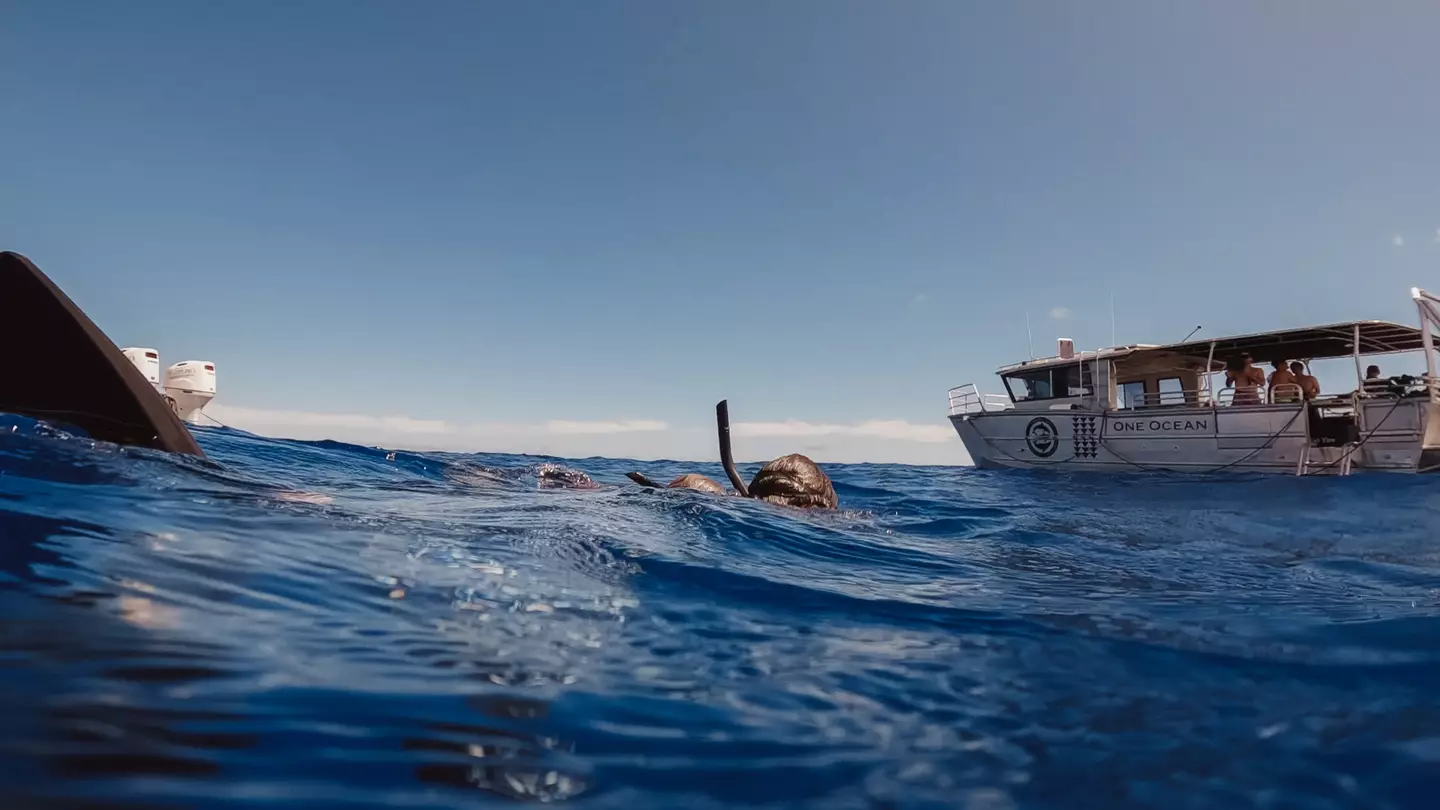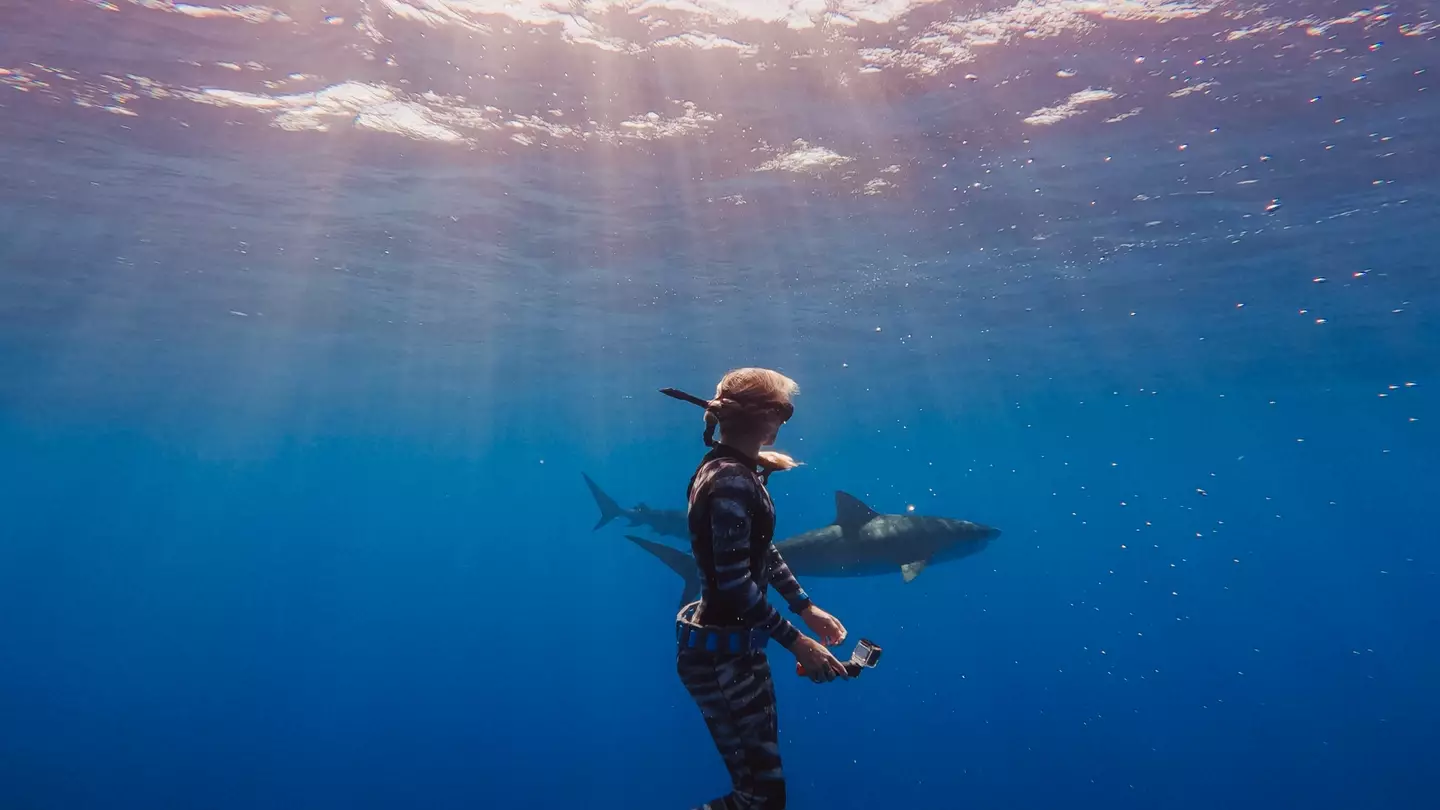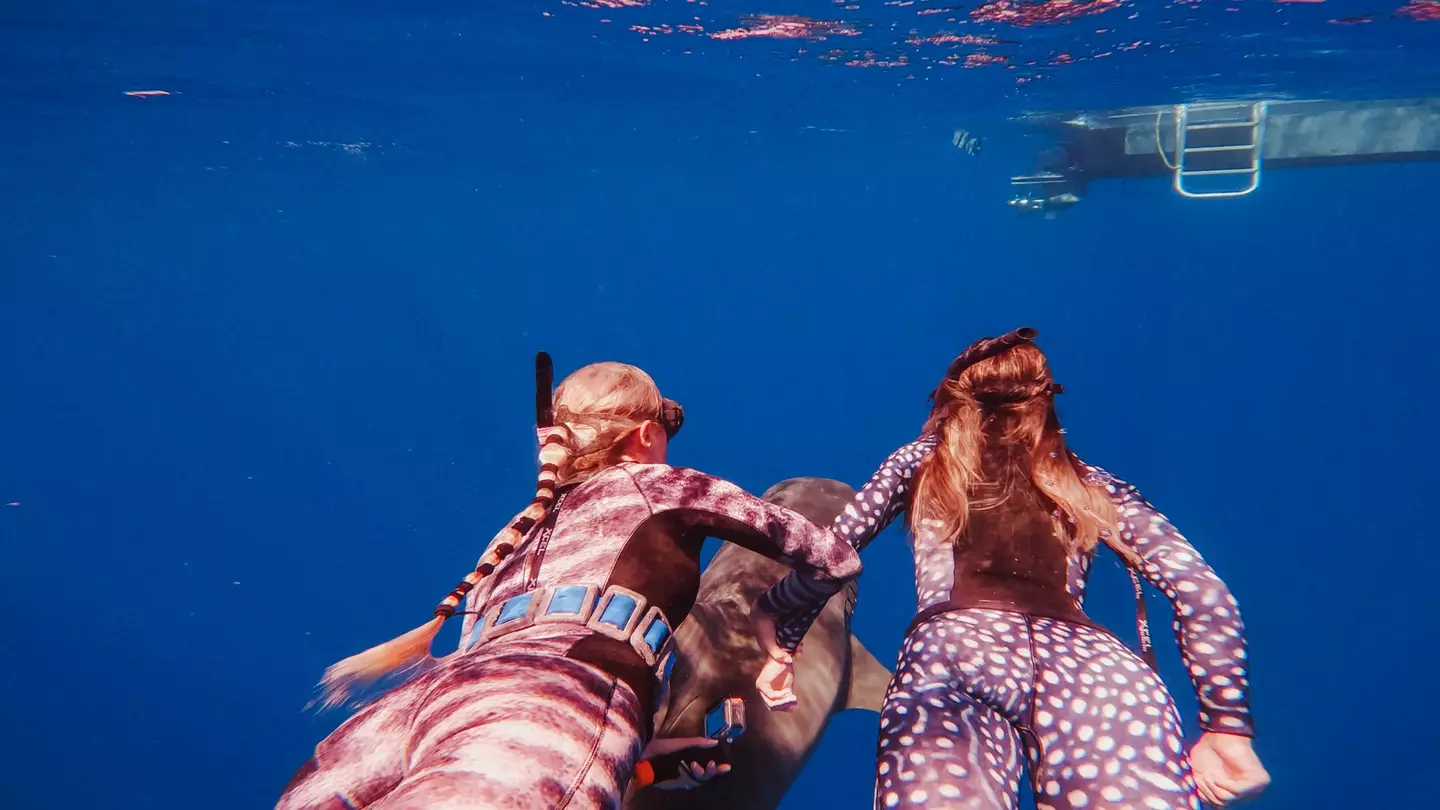
There are ways to go about swimming with sharks, and jumping into the water in a spot where you were just feeding them is probably not the way to go.
Sharks conservationist Ocean Ramsey has been swimming with arguably the most feared animal in the world since she was 'seven or eight years old' and in that time, she's never really felt that her life was threatened while in the water.

Advert
But she has been on a dive when a shark attack took place.
"So it's interesting that you call it a shark attack, but a lot of the times what people don't realize is that these rare incidences that make the news, there's usually a human implication involved," she told UNILAD.
"Some sort of thing that a human was doing that sort of led to that encounter, that bite, that accident."

'The sharks were getting fed'
Ocean, of Hawaii, doesn't recall exactly when the attack took place, just that it was 'a long time ago' on someone else's boat where they were in charge of safety - she was just there to go diving.
Advert
Speaking about the shark attack, she said: "Unfortunately, they had told a girl to jump in the water without her fins on, and it was right where they had been feeding some lemon sharks."
The author of What You Should Know About Sharks decided against going into the details of where the attack happened, because 25 percent of all sharks and rays are being threatened with extinction, as per the World Wildlife Fund.
"It was kind of one of those- I wasn't there at that exact moment, but... the sharks were getting fed right at that spot... she jumps in without fins, there's a quick little bite and release," Ocean continued.
"She was okay and she's actually very pro-shark conservation."
Advert

What should you do if a shark approaches you in the water?
If you watch any of the 'sensationalized, demonizing, fictitious movies' about sharks, as Ocean puts it, then you'll see shark victims do everything that you're not supposed to do - splash, swim away quickly, and scream.
Ocean explained that you need to make yourself appear big, much like you should with a territorial dog - face it, make yourself appear large and slowly back away.
Advert
"Try and minimize noise and splashing. If you are approached, look at them, face them, slowly back away," Ocean said.
"And then I even go into redirection techniques [in her book], so if the shark kept approaching you'd want to extend an inanimate object - if you've got dive fins, if you've got like a GoPro on a pole, a big camera, or even potentially your surfboard.
"If it's really going at you, which is so rare, and then you know, as it turns you'd slowly start to move back and exit, minimizing the splashing of the noise, definitely not panicking... if at all possible."
To learn more about what the 'misunderstood' creatures, the YouTube channel 'Team Ignition' has created a ten part content series dedicated to the pursuit of strategic risk within extreme sports.
How to avoid sharks in the water
Depending on where you are in the world, it's difficult to avoid sharks but there are things you can do to reduce the likelihood that you'll encounter one in the water.
Avoid wearing bright colors like silver, white, or 'yum-yum yellow'. Ocean explains: "We look at the world the way that sharks look at the world as best as we can estimate that they've got monochromatic vision, so bright colors are going to stand out in their environment, or potentially mimic fish scales and things like that."
Advert

The experienced diver went on to further explain that being aware of your surroundings can also help - for example, don't go surfing or diving too close to areas that are being utilized by fishing, be that on the water or fishing piers, and don't swim anywhere that discarded fish scraps are being thrown.
Finally, not that you'd ever want to, but places where there is sewage discharge should be a place to steer clear.
"You tend to get more activity around those types of areas," Ocean added.